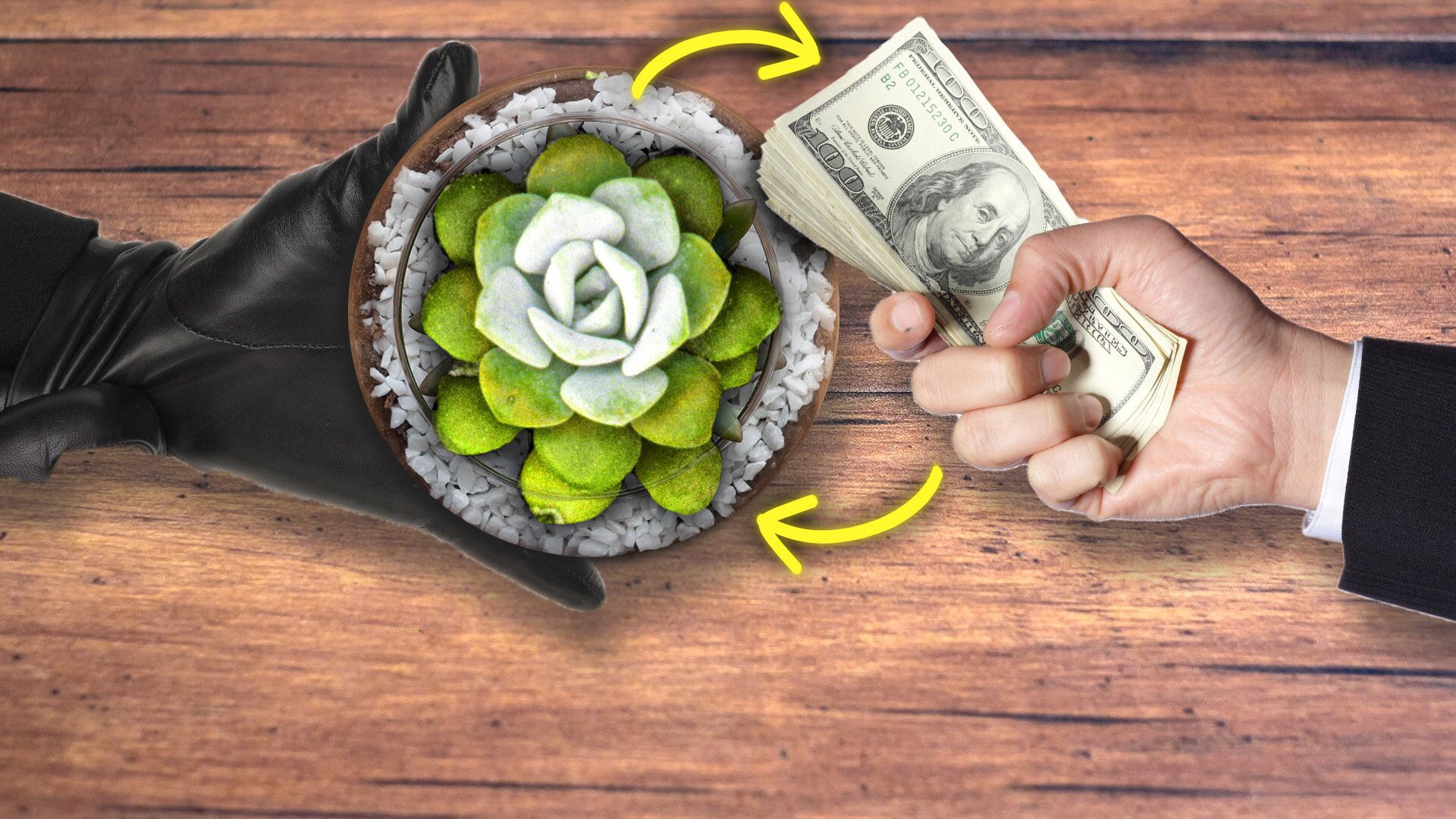It may come as a surprise, but a growing obsession with houseplants and gardening is endangering several plant species and pushing them to the brink of extinction. The unhealthy fascination is the driving force behind an illegal plant trading market, and with little to no oversight, stopping these illicit sales is proving to be difficult.
Gardening in the U.S. has trended upwards over the last several years, with Americans spending $36.1 billion on the hobby in 2015. Houseplant popularity and home gardening surged particularly in 2020 during the pandemic as DIY projects really took off.
Among nurseries and gardening centers, 62 percent reported greater sales in 2020 than in 2019, and half of those businesses expect to continue profiting during 2021.
However, as the industry gains popularity, it also fuels a growing need to secure more and more rare plants.
Cactus Plants at Risk
Today, the concern is for succulents, a catch-all term for plants that store water in thick, fleshy tissues. Similar to the way many endangered animal species have to face poachers, succulents are falling into the same fate right in our own backyard.
Perhaps the most popular succulent is the Saguaro cactus, which is indigenous to Arizona. The plant stands at a staggering 6 feet when it reaches full maturity and the yield for poachers can hit $100 per foot.
"The unfortunate consequences of how these species have evolved in ways that may make them more susceptible to illicit trade, the fact that these species can survive long periods, for instance, oftentimes without water, makes it much easier, for instance, to remove them from the ground and put them in a box and ship around the world in a way that you couldn't necessarily transport a much more sensitive plant," Jared Margulies, assistant professor at the University of Alabama, told Cheddar.
Smaller succulents may not go for $100 per foot but they are in just as much danger as their taller cousins. The International Union for Conservation of Nature reported that 1,478 evaluated cacti species are threatened.
Access to Illegal Plant Trade
While one might think of the illegal plant trade taking place on some shady black market — or even on the dark web — the reality is that taking place in plain sight on mainstream websites like eBay. Even though the federal government established the Lacey Act in 1990 to ban the illegal trade of animals and plants, enforcing the law is a completely different matter.
"There are instances where seeds have been captured at Customs and Border Patrol and then the seeds had to be planted — and years went by in order to see what cactus species was actually being grown, to see whether or not a law had been broken. So you can see how that poses some really serious problems for regulation," Margulies said.
While authorities face some big obstacles when it comes to assessing the legality of plant seeds they might discover on a person, they have begun to adopt practices that can help track down poachers of already grown plants. In Arizona's Saguaro National Park, cacti are being tagged with microchips, so If a poacher happens to take one, authorities will be led directly to the plant's location.
Tracking Stolen Plants
As a result of the tireless work in tagging so many plants, many of the stolen ones have been replanted in the desert. Unfortunately, some could pose a threat to the entire habitat if they were placed back.
"They don't want to introduce diseases," Karen Little, environmental lab manager at Sul Ross State University, told Cheddar. "No one confessed where they got them, so it's impossible to put them back. But I feel like putting the majority of them back in the habitat is helpful, even if it's within a couple hundred miles from where it came from at least that, that ecosystem is out there and still in the habitat."
Though the poaching of cacti and other succulent species from the wild is likely to continue, if commercial growers and agencies responsible for regulation could work out sustainable trade practices as the demand continues to rise, the illegal market could take a significant blow.



